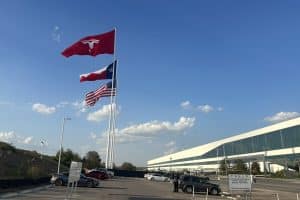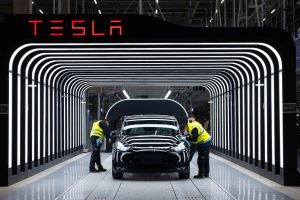Key Points
- 🚗 General Motors’ self-driving subsidiary, Cruise, recalls nearly 1,000 driverless cars after a pedestrian accident.
- 🚦 The California Department of Motor Vehicles (DMV) revoked Cruise’s permit after a vehicle hit and pinned a pedestrian.
- 🔄 The recall is due to a failed post-crash response in Cruise’s Automated Driving Systems (ADS) collision detection subsystem.
- 🌐 Cruise faces both state and federal investigations into its technology, and its driverless fleet in San Francisco was ordered to be reduced by 50 percent.
- 🛑 The recall addresses software issues causing autonomous vehicles to pull over out of traffic instead of stopping as the desired post-collision response.
- 📉 Cruise acknowledges the potential recurrence of a similar collision with a risk of serious injury every 10 million to 100 million miles before the software update.
- 🚗 Cruise plans to file additional recalls as its software improves to enhance safety across its fleet.
- 🕵️ Investigations involve external legal and consultancy firms hired to evaluate Cruise management’s response to the incident and assess its technology.
General Motors (GM) self-driving subsidiary Cruise has announced a recall of almost 1,000 of its driverless cars following an incident last month in which one of its vehicles hit and pinned a pedestrian.
Cruise’s permit to operate driverless vehicles was revoked by the California Department of Motor Vehicles (DMV) last month after one of the company’s vehicles dragged and pinned a pedestrian who had been hit by another car. According to a recall notice from the National Highway Traffic Safety Administration (NHTSA) on Wednesday, Cruise is now recalling 950 of its driverless vehicles from across the U.S. and more recalls are expected to come (via Reuters).
The vehicles are being recalled due to a failed post-crash response within the collision detection subsystem in Cruise’s Automated Driving Systems (ADS), as detailed in a recall notice from the National Highway Traffic Safety Administration (NHTSA) on Wednesday.
The recall comes as just the latest in a series of bad news for Cruise, which now faces both state and federal investigations into its technology. In August, Cruise was also ordered by the California DMV to reduce its driverless fleet in San Francisco by 50 percent, following a handful of other concerning incidents.
According to Cruise, the recall surrounds the specific circumstances when the software for its autonomous vehicles (AVs) may cause them to pull over out of traffic following an accident rather than stopping “when a pullover is not the desired post-collision response.”
Cruise estimates that “a similar collision with a risk of serious injury could have recurred every 10 million to 100 million miles of driving on average prior to the software update.”
“As our software improves, it is likely we will file additional recalls to inform both NHTSA and the public of updates to enhance safety across our fleet,” Cruise added.
Following the October 2 accident and a slew of other incidents with the company’s driverless vehicles, the California DMV criticized the company for “omitting” and “misrepresenting” certain details in a blog post about the incident.
Earlier this week, reports showed that the company’s board had hired the outside legal firm Quinn Emanuel to help investigate Cruise management’s response to the event, along with the consultancy Exponent to help the company evaluate its technology.
On Tuesday, it was also reported that Cruise and GM will production of the Origin self-driving van, of which CEO Kyle Vogt said the company had produced hundreds. Vogt also clarified Cruise’s use of human remote assistance this week, following claims that the company’s vehicles were not really driverless.




